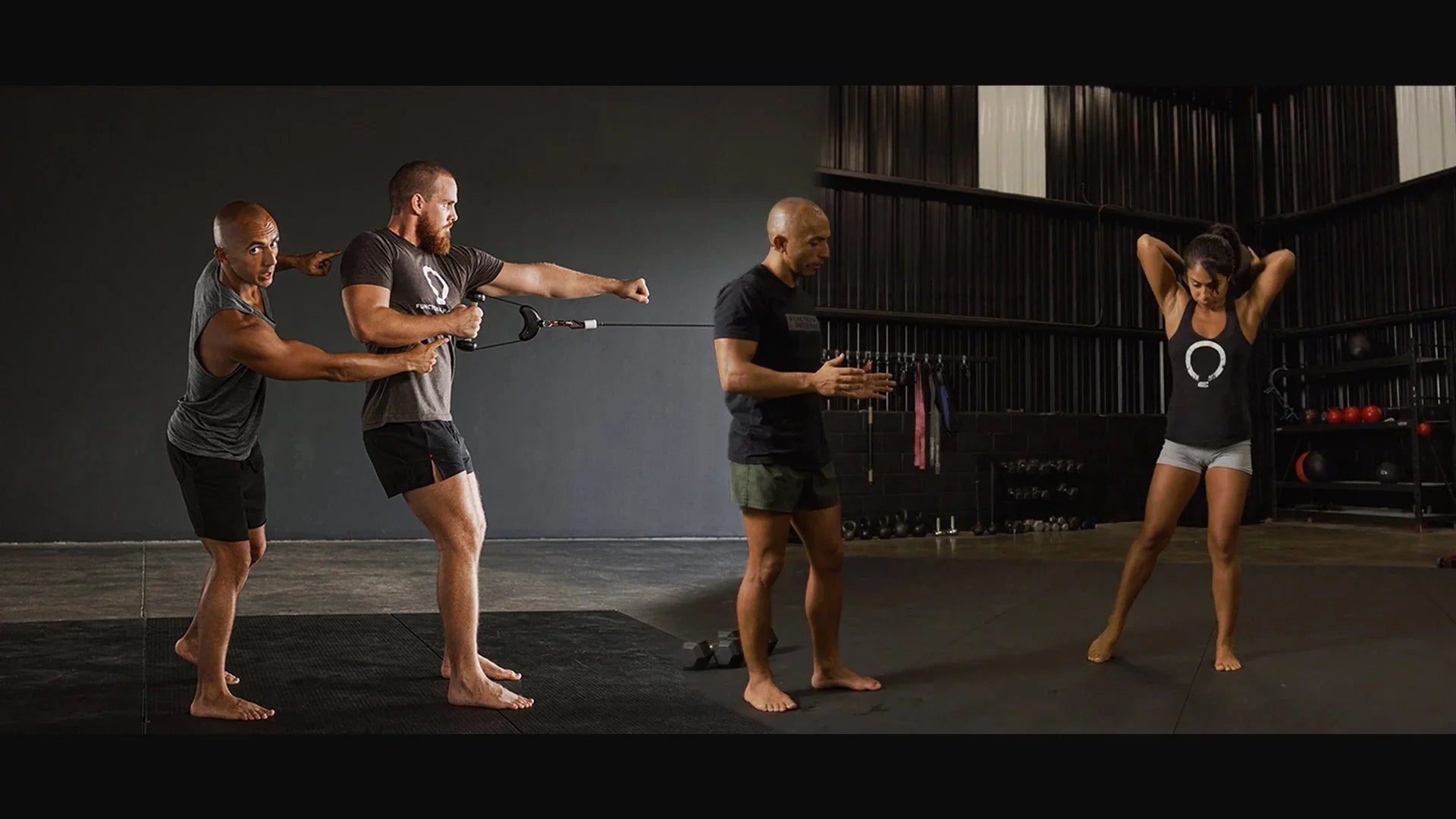Stress is often treated as a surface-level issue: something to be managed through relaxation techniques, meditation, or temporary escapes. While these methods may offer short-term relief, they fail to address the underlying causes of stress at a biomechanical level. At Functional Patterns, we take a first-principles approach to solving problems, including chronic stress and anxiety. Instead of masking symptoms, we break issues down to their most fundamental components and rebuild from there.

Stress and the Body: A Biomechanical Perspective
Your body’s stress response isn’t just psychological, it’s deeply tied to your movement, posture, and muscular imbalances. Poor biomechanics create compensations that lead to chronic tension, inefficient breathing patterns, and overactivation of the nervous system. This can leave you stuck in a fight-or-flight state, making stress management a daily struggle.
Rather than relying on temporary fixes like meditation retreats, Functional Patterns focuses on correcting movement at its root. By restoring efficient biomechanics, we help lower systemic tension, improve nervous system regulation, and reduce the overall stress load on the body.
The Problem With Conventional Stress Management
Meditation retreats, like Vipassana, have gained popularity as a way to step back from daily distractions and “reset” the mind. While removing external stressors can provide temporary relief, it doesn’t fix the internal dysfunctions that contribute to stress in the first place.
Many people return from these retreats only to find themselves right back in the same cycles of tension, anxiety, and poor movement habits. Without correcting the mechanical inefficiencies that contribute to stress, the body remains trapped in a dysfunctional pattern, no matter how much mental effort is applied.

Applying First Principles to Stress Reduction
At FP, we approach stress reduction not as an abstract mental process, but as a physical issue rooted in biomechanics.
-
Eliminate Dysfunctional Movement Patterns
- Just as a silent retreat removes external distractions, Functional Patterns’ Movement Elimination Protocol removes unnecessary, inefficient movements that drain energy and create stress within the body.
- If your posture and gait are misaligned, your body must work harder to compensate, leading to chronic tension and increased stress hormones. Fixing this at the source eliminates a major stressor on the nervous system.
-
Restore Balance at a Cellular Level
- When your biomechanics are misaligned, your body remains in a constant state of instability, forcing muscles to overwork and signaling stress to the brain.
- FP training reintegrates the body’s movement systems, improving muscle recruitment, oxygenation, and nervous system function, allowing you to operate from a state of regeneration instead of depletion.
-
Tune Into Boredom: The Ultimate State of Being Present
- We encourage setting aside time to do absolutely nothing, not even meditation. While meditation focuses on observing reality as it is, if your biomechanics are out of sync, that reality is often dysfunction and stress.
- Doing nothing might mean sitting outside in the shade without a book or journal or simply lying in bed indoors. The goal is to tune into your body and thoughts, allowing whatever arises to surface without immediately reacting. Sitting with yourself helps uncover the deeper layers behind your behaviors.
- The goal is to recognize what is a distraction and actually taking away your ability to problem-solve your stress, so that you can respond proactively rather than reactively.
Rethinking the Role of Rest
At FP, we encourage intentional rest, not just passive relaxation. Sitting quietly for 15 minutes per day isn’t about “meditation”, it’s about checking in with your body to assess how well it’s functioning.
- Are you feeling restless and fidgety?
- Is there tension in your shoulders, jaw, or lower back?
- Does your breathing feel shallow and restricted?
These are signals that your body needs biomechanical correction, not just mental relaxation. Fixing the way you move and breathe will make stillness feel natural, not forced.
The Key to Sustainable Stress Reduction
Stress is not just a mindset, it’s a physical state influenced by how your body moves, holds tension, and breathes. While silent retreats and meditation can offer a temporary escape, they don’t provide a lasting structural solution.
At Functional Patterns, we don’t just teach you to manage stress; We help eliminate the biomechanical dysfunctions that create it. By training intentionally and aligning with first principles, you can move away from habitual stress responses and toward a body that naturally sustains a lower-stress state.


Stop managing stress. Start tackling it at the root.







